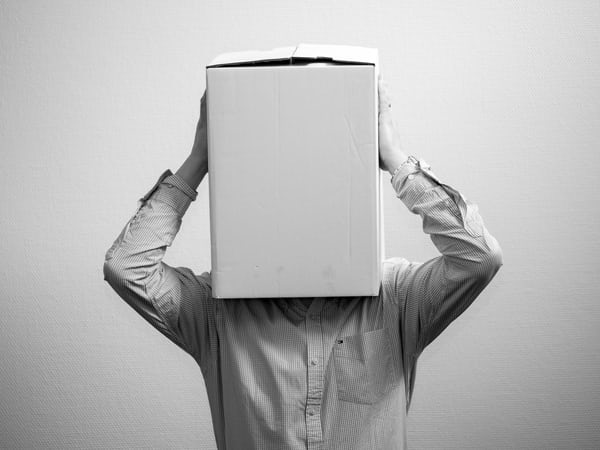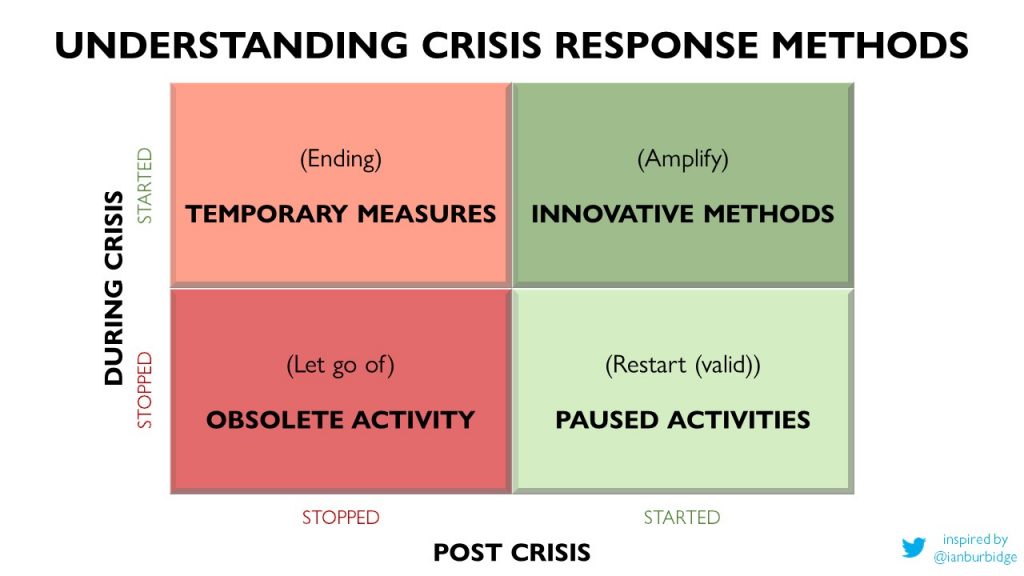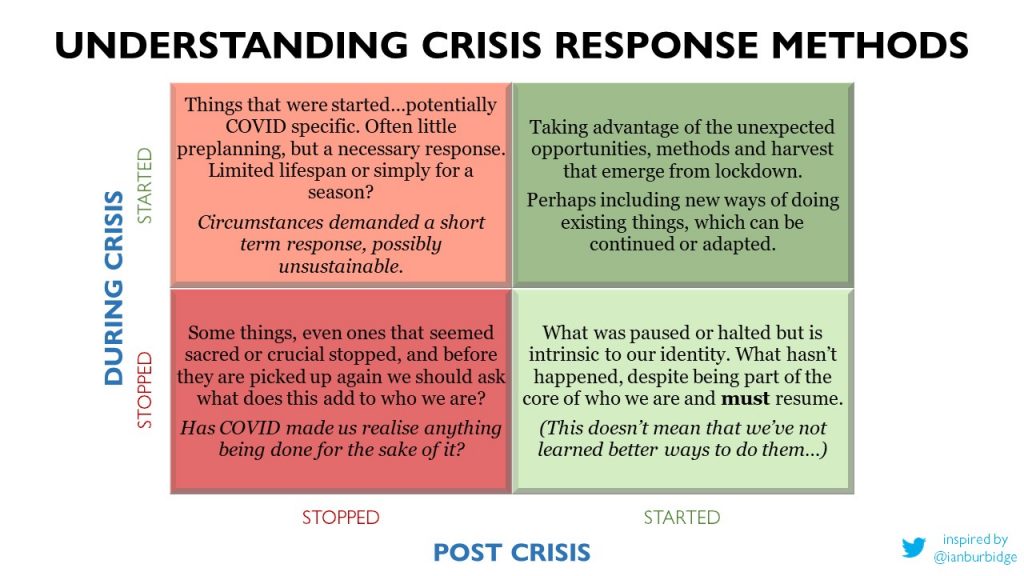
We’re finding ourselves in a place where there is a tension about how things will restart and resume after the strictest stages of the COVID-19 pandemic. Whether it’s shopping, leisure or church we’re all asking questions about what things in our lives we can and can not do again. But perhaps, as churches as much as we ask what we can do, we can take this opportunity to ask what we should do.
I was provoked by a diagram that I found through Social Media that looked at what things we did before the pandemic and what things we have done during the pandemic and asking which of the ‘before’ activities we either continue or restart, and what things that we’ve begun during the lock-down and what will be temporary or what will be permanent.

We’ve all stopped certain things over recent months, and we’re now at the stage of asking how and what will restart, and crucially, how will they be different. What about our congregations is building the kingdom and what is bearing fruit.
Where we have been people who are giving out food, how do we support those in poverty and hunger as life changes again? Where we have been interacting with new faces in digital and online ways – perhaps the only way that they’ve ever known ‘church’ how we will seek to engage with them as time goes on?
This diagram urges us to ask to look at what will be beyond COVID. The world is not going to return to a 2019 model of life. Life will be different, we will find (as the dreaded phrase says) ourselves in a ‘new normal’. The grid does not just apply to COVID, but to any disruption – though COVID has certainly been the biggest challenge our society and the church has faced in generations.
Now is an opportunity to evaluate, examine and seek God for what we are doing. It’s easy to slip into routines, or to follow the path of least resistance, but it’s a good opportunity to look at those four boxes and ask “what do we need to be doing next?”
Perhaps some pandemic activity is unsustainable in the long term, or there are things we did before that we paused which are crucial to our identity as congregations (eg eating/celebrating together.) Everything we do can fit into one of these four categories:
-
-
-
-
-
-
- Things we started during the crisis, that will stop and not continue…
- Things we started during the crisis that we wish to continue (in one form or another) …
- Things that stopped during the crisis that will not restart again…
- Things that stopped during the crisis that will resume (possibly with a different form) …
-
-
-
-
-

This moment is a opportune time to consider what we do, and to remould ourselves, taking lessons from our congregations before and during lockdown. What we can be need not be what we are. God is transforming us, and he calls us to transform his world through the church. How we turn the ‘new normal’ into a better normal for our churches, congregations and all those we encounter is now our next big question…
Mike Roberts, The Table at Oakwood
www.twitter.com/birdsnestsblog
See @ianburbridge on Twitter for more about this…
